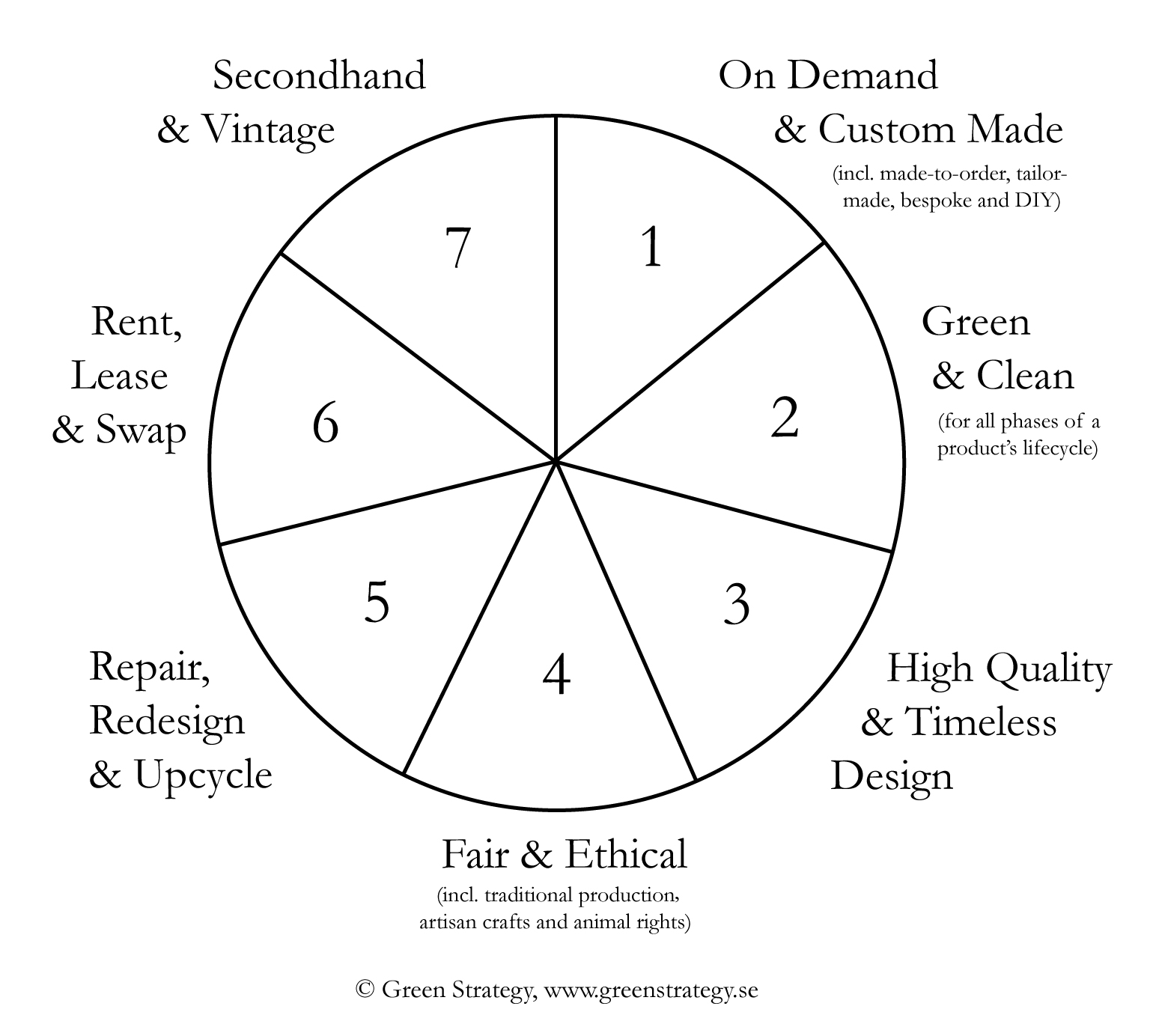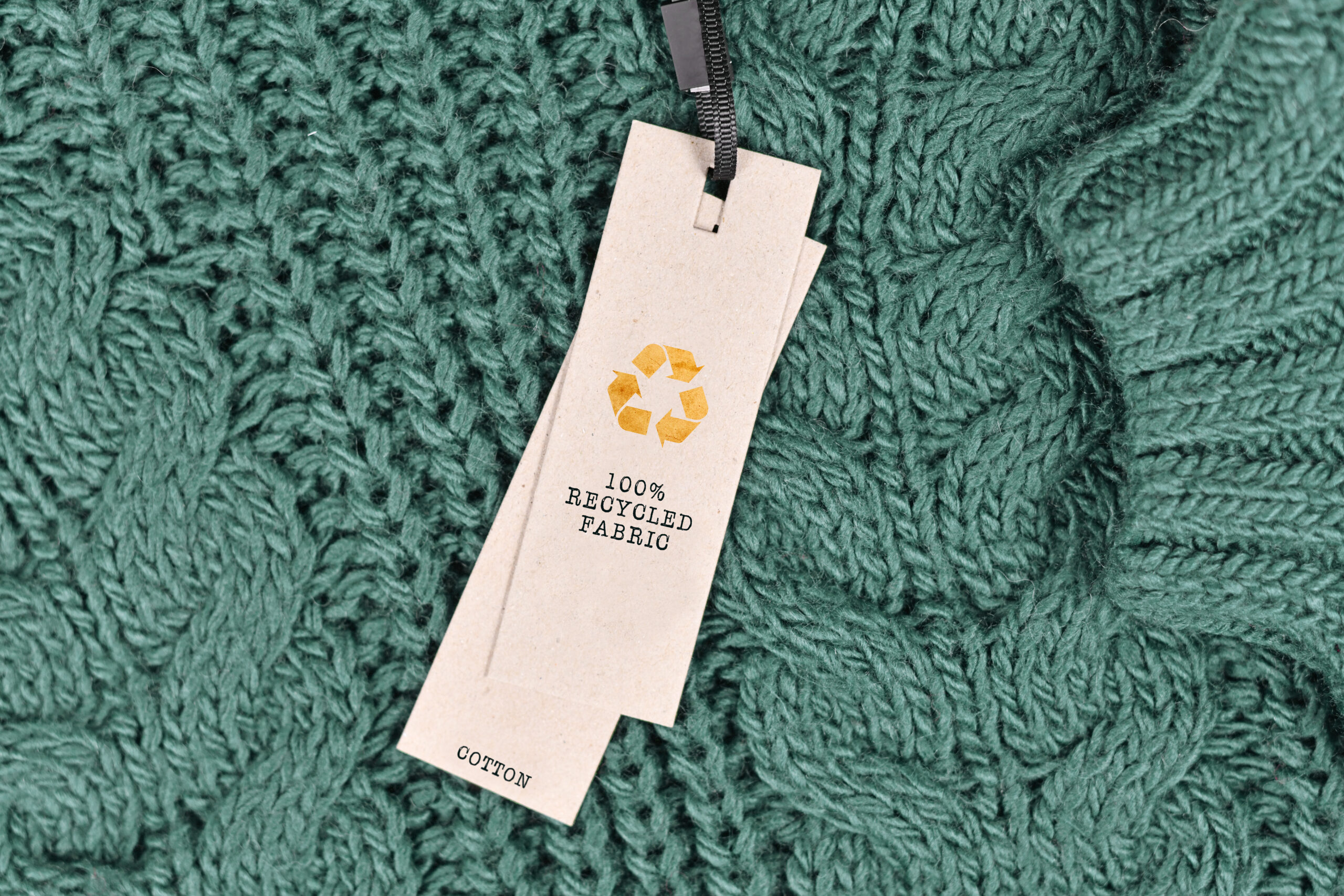The Long Term of Cape Town Sustainable Fashion in the Global Market
The Long Term of Cape Town Sustainable Fashion in the Global Market
Blog Article
Keep Ahead of the Contour by Checking Out Innovative Fashion Fads
In a market as dynamic as fashion, remaining ahead entails more than simply following present fads-- it demands an exploration of technology. Smart textiles, for example, are transforming garments into practical masterpieces, while 3D printing is revolutionizing layout procedures with its personalized, waste-reducing capacities. As sustainability comes to be a keystone, technologies like environment-friendly materials and round style practices are reshaping ecological responsibility - Cape Town Sustainable Fashion. In addition, the merging of technology and fashion advertises a new age of consumer engagement. How, after that, can these emerging trends redefine the future of fashion, and what implications do they hold for brands seeking to thrive in this evolving landscape?

Welcoming Smart Textiles
In recent years, the fashion business has actually observed a transformative shift with the combination of smart textiles, a cutting-edge development that mixes modern technology with fabric. This advancement represents not just a blend of appearances and functionality but additionally a substantial leap in the direction of sustainability and customization in fashion. Smart fabrics, additionally called e-textiles, installed sophisticated electronics such as sensors and conductive threads within the material, making it possible for garments to engage with the wearer or the setting.
These fabrics are designed to keep track of physiological criteria, such as heart rate or body temperature level, offering real-time wellness analytics. Beyond health applications, clever fabrics are also being made use of for flexible apparel, which can change color or pattern in response to environmental stimulations, hence providing a dynamic fashion experience.
Additionally, the growth of energy-harvesting fabrics that create power from motion or sunshine is leading the way for self-sufficient wearable innovation. This development is attracting ecologically aware consumers and developers intending to lower the eco-friendly footprint of fashion. As r & d in this area advancement, smart fabrics are expected to end up being significantly widespread, reshaping the landscape of modern style with their multifunctional abilities.
The Rise of 3D Printing
Reinventing the manufacturing landscape, 3D printing has actually emerged as a game-changer in the fashion business. This innovative modern technology has actually enabled developers to press the limits of imagination, creating complex and personalized garments that were previously unimaginable. By leveraging electronic layout and additive production, 3D printing assists in the production of intricate geometries and patterns, allowing developers to trying out brand-new structures and frameworks.
A remarkable benefit of 3D printing in vogue is its capability to produce on-demand, decreasing waste and minimizing inventory requirements. This effectiveness not only optimizes production procedures however likewise permits for rapid prototyping, making it possible for developers to bring their visions to life in a shorter duration. Additionally, 3D printing sustains customization to a degree unmatched by standard approaches, offering special styles and individualized fits customized to individual customer preferences.
The increase of 3D printing has also democratized fashion, making it easily accessible to emerging designers that can now fabricate premium pieces without significant financial investment in traditional production infrastructure. As technology remains to development, the apparel industry is positioned to harness the full capacity of 3D printing, discovering brand-new products and methods that will most certainly redefine exactly how style is developed and created.
Lasting Fashion Advancements
As the fashion business faces journalism need for ecological responsibility, sustainable style advancements have actually emerged at the center of transformative adjustment. The growing awareness of environmental impact has actually fueled a shift in the direction of more eco-conscious practices and materials. Developers and brand names are now focusing on sustainability, integrating techniques that reduce waste and lower carbon impacts.
One considerable growth is the rise of round style, which emphasizes recycling and upcycling to prolong the lifecycle of garments. This method not just minimizes waste yet also urges consumers to take on a much more conscious approach to garments usage.
One more innovation hinges on the fostering of cutting-edge dyeing methods that make use of all-natural dyes or waterless procedures, therefore reducing the substantial quantities of water and chemicals traditionally utilized in textile dyeing. Moreover, developments in biotechnology have actually resulted in the development of lab-grown natural leather and materials, offering cruelty-free and eco-friendly alternatives to traditional products. Through these introducing initiatives, the fashion business is making meaningful strides in the direction of a more sustainable future.

Tech-Integrated Apparel
Tech-integrated clothing represents a cutting-edge fusion of style and technology, reshaping just how people communicate with their clothing. This cutting-edge domain is noted by the incorporation of smart textiles and embedded electronic elements, improving both capability and visual charm. From health and fitness trackers installed in sportswear to heated jackets managed using smart device applications, tech-integrated clothing provides consumers unmatched convenience and versatility.
Introducing brands are driving this trend, focusing on producing garments that react to ecological stimuli or individual commands. As an example, some garments can transform shade or pattern in response to temperature changes, while others incorporate biometric sensors to keep track of health and wellness metrics like heart price or stress degrees. The smooth assimilation of modern technology into fabrics additionally reaches ecological sustainability, with initiatives to develop self-cleaning fabrics or garments that adapt to weather, therefore decreasing the requirement for several layers.
In addition, the development of wearable modern technology is not simply restricted to garments however encompasses accessories like watches and glasses, additional expanding the range of tech-integrated fashion. As the sector continues to introduce, the potential for customization and personalization in clothing grows, providing consumers special, tech-enhanced style experiences that provide to their specific needs and choices.
Future of Virtual Fashion
Over the last few years, the future of digital style has actually become a transformative pressure within the industry, leveraging improvements in electronic modern technology to redefine just how fashion is created, experienced, and eaten. By integrating augmented fact (AR), virtual reality (VR), and 3D layout tools, designers can currently craft immersive and interactive experiences that go beyond traditional fashion borders. Online fashion enables the development of garments that exist only in electronic settings, supplying countless opportunities for innovation without the limitations of physical production.
This electronic change not just presents chances for imaginative expression however likewise addresses sustainability issues integral in traditional style practices. Cape Town Sustainable Fashion. By eliminating the need for physical sources, online style decreases waste and lessens carbon footprints. Moreover, the rise of online fashion aligns with the boosting customer demand for personalized and special experiences, as online garments can be personalized and tailored to individual choices with simplicity

Verdict
The style sector's future lies in the combination of lasting practices and ingenious modern technologies - Cape Town Sustainable Fashion. Smart fabrics and tech-integrated apparel are enhancing performance, while 3D printing provides possibilities for personalization and waste right here decrease. Sustainable style, through environmentally friendly materials and circular techniques, shows a commitment to environmental stewardship. Moreover, digital style is poised to redefine consumer communications. Adapting to these trends is vital for brands looking for to continue to be relevant and competitive in this quickly developing landscape.
In current years, the fashion sector has experienced a transformative change with the integration of smart textiles, a cutting-edge technology that mixes innovation with textile.As the fashion market grapples with the pressing demand for ecological obligation, sustainable fashion developments have arised at the leading edge of transformative change.In current years, the future of online style has actually arised as a transformative force within the market, leveraging innovations in digital modern technology to redefine just how style is developed, experienced, and taken in. The rise of virtual style aligns with the boosting customer need for special and individualized experiences, as digital garments can check my reference be customized and customized to specific preferences with ease.
The style market's future lies in the assimilation of sustainable techniques and ingenious technologies.
Report this page